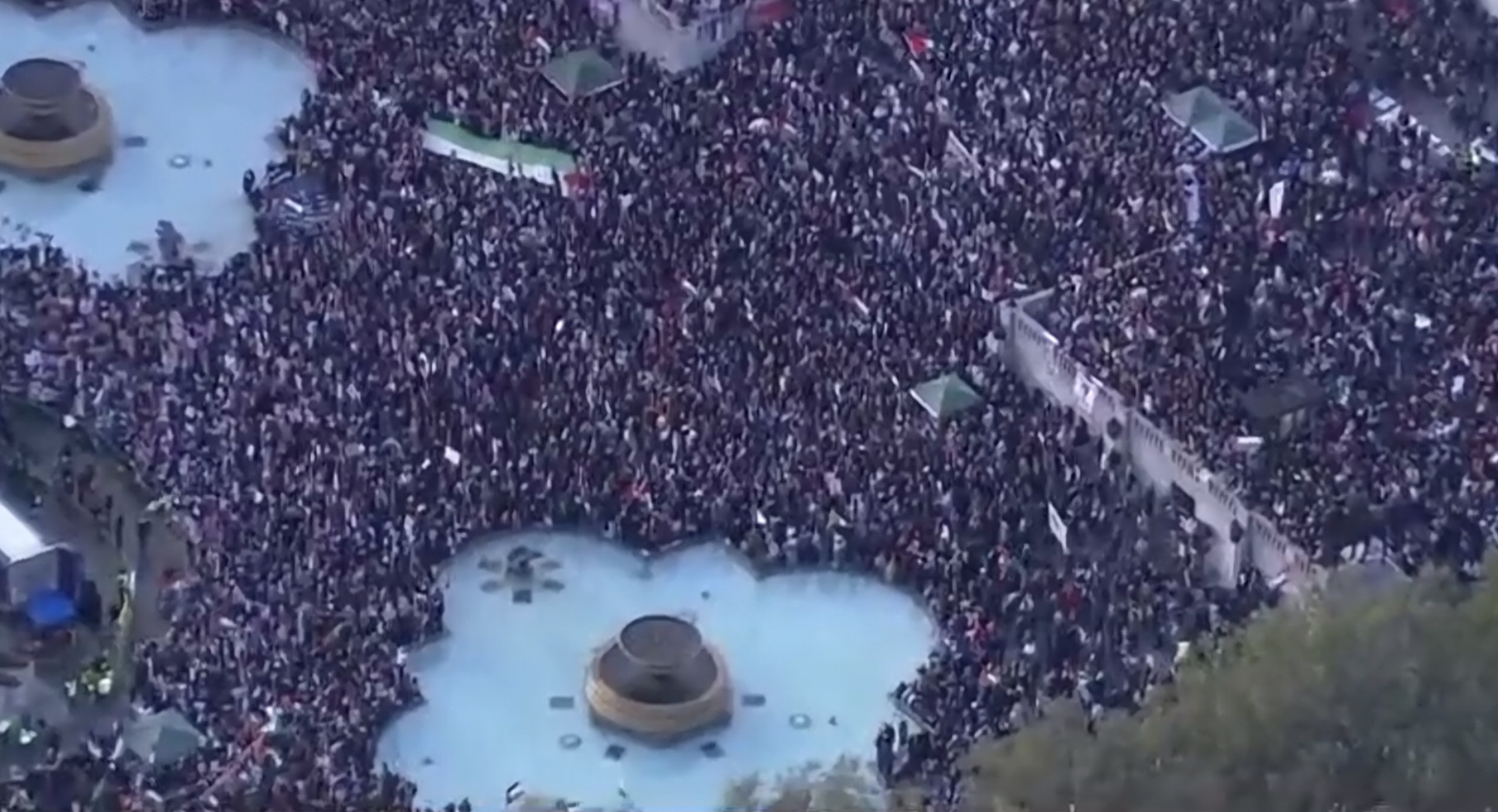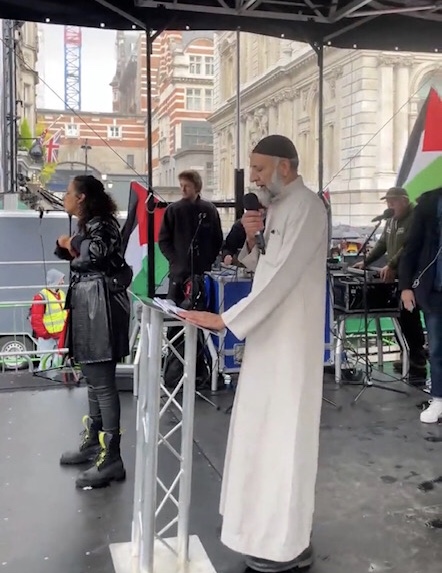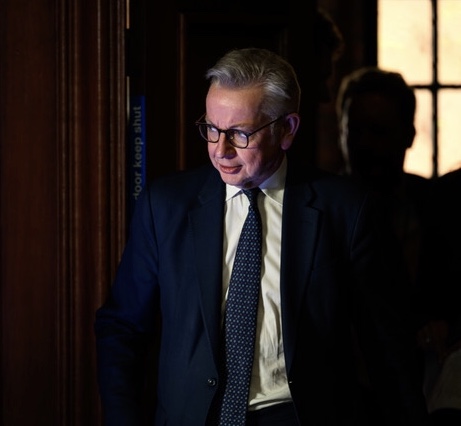Michael Gove MP, the current Minister for Levelling Up, Housing and Communities, has drawn fire from civil rights groups and human rights organisations, after it was revealed in a leaked document that officials in his department, had been working on a new set of proposals to extend the current already controversial definition of ‘extremism’ to include any person who is deemed to ‘undermine’ the country’s institutions and its values.
The leaked plans have apparently not only caused a stir among human rights practitioners, but within the ranks of Whitehall officials, who have stated their concerns that such proposals will lead to the prevention of legitimate groups from expressing dissent and would inevitably criminalise anybody who objects to the official government line – such as those who oppose a ceasefire in Gaza.
The review by Michael Gove’s Department was commenced in April of this year with the purpose of producing a new ‘national cohesion and counter-extremism plan’.
Muslim groups – MCB and MEND, singled out as examples of bodies which will fall foul of the new provisions
Leaked internal documents – which are marked ‘official and sensitive’ and seen by journalists at the Observer newspaper, define the new proposed definition as framing ‘ a new, unified response to extremism’. The documents controversially goes as far as listing a number of Muslim umbrella organisations, empowerment and lobbying groups, including the Muslim Council of Britain (MCB), Palestine Action and Mend (Muslim Engagement & Development), as part of a guidance description of likely bodies which will fall foul of the new definition:
‘Extremism is the promotion or advancement of an ideology which aims to overturn or undermine the UK’s system of parliamentary democracy, its institutions and values; or threaten the rights of individuals or create a permissive environment for radicalisation, hate crime and terrorism’.
Amnesty International UK’s racial justice director, Ilyas Nagdee, responded to the news of Michael Gove’s redefinition plans by saying:
‘This definition must not be accepted or implemented. The definition of extremism and its usage in counter-terrorism policies like Prevent is already being applied so broadly it seeks to effectively hinder people from organising and mobilising’

Calls to ban the Pro-Palestine march on Saturday 11th November
The leak comes as calls have been made to ban the pro-Palestine march scheduled to make its way through central London next Saturday 11th November, on the basis that the march poses a threat to the tranquility of the Remembrance Day commemorations, which are also taking place on that day. Conservative MP and former Afghanistan military veteran, Tom Tugendhat, has written to the Mayor of London, Westminster Council and the Met Police, arguing that:
‘the Cenotaph is sacred ground and the idea that on a day like Remembrance Day you would have a protest going past it, I don’t think that is acceptable’.
Tugendhat has asked them:
‘to look very carefully at the powers that they have and to consider what options they have available’ to stop the march from happening.
The Front page story on the Times this weekend carried a headline ‘Chief rabbi’s protest fears: Supporters of ‘hateful Hamas going unchallenged, he warns before marches planned for Armistice Day’.
The Prime Minister, Rishi Sunak, has publicly said that plans to protest on Armistice Day, a week today, are:
‘provocative and disrespectful’ and ‘an affront to the British public and the values we stand for’.
The Home Secretary, Suella Braverman, described the marches as ‘hate marches’ and made clear that she would respond positively and immediately to any request from the Met Police to halt the march on security grounds.
Next Saturday’s march is seen by the majority of UK citizens, as representing the legitimate rights of expression by hundreds of thousands of UK citizens, to show their dissent to the government’s support for Israel’s carpet bombing of the Gaza strip over the last 28 days and the blockade of fuel, food, water and medical supplies to 2.2 million residents of the strip. They will be expressing their horror at a government, which refuses to call for a ceasefire, while the death toll in the Gaza strip now exceeds 10,000 innocent Palestinians – half of whom are children and women. Under the new proposals, any such demonstration could be deemed to be at odds with UK and parliamentary values.
The Met Police has said it is considering a ban on the march, despite the organiser’s claim that the protest will avoid the Cenotaph in Whitehall altogether.

‘A desire to suppress widespread public support for an end to Israel’s bombardment of the people of Gaza’
Ismail Patel, founder and Chair of Friends of Al Aqsa – one of the organisers of next weekend’s march, was unequivocal about what he sees as the motives for the proposed ban. He said:
‘We have made it clear that we have no intention of marching on or near Whitehall, in order to not interfere with events at the Cenotaph.
Our planned route is Marble Arch to Battersea Park, and we anticipate that the march will begin around 12.45, nearly 2 hours after the minute of silence of commemoration for the war dead.
Given these facts, we are alarmed by members of the government, including the Prime Minister, issuing statements suggesting that the march is a direct threat to the Cenotaph and designed to disrupt the Remembrance day commemorations.
Such statements are encouraging the calls from far-right activists and commentators who appear to be inciting action on the streets to stop the protests taking place, and are deeply irresponsible.
Given the wider context of the previous statements by the Home Secretary seeking to demonise all of those marching in support of the rights of the Palestinian people, it is clear that these further statements are motivated by a desire to suppress widespread public support for an end to Israel’s bombardment of the people of Gaza.
Each of the demonstrations we have called have been peaceful and attended by hundreds of thousands of people and families from a diverse cross-section of British society. Those marching are united in their belief that violence should stop and that international law – which prohibits the targeting of civilians – should be respected. To suggest that a march well away from Whitehall is disrespectful to the war dead is an insult to those marching for peace’


















